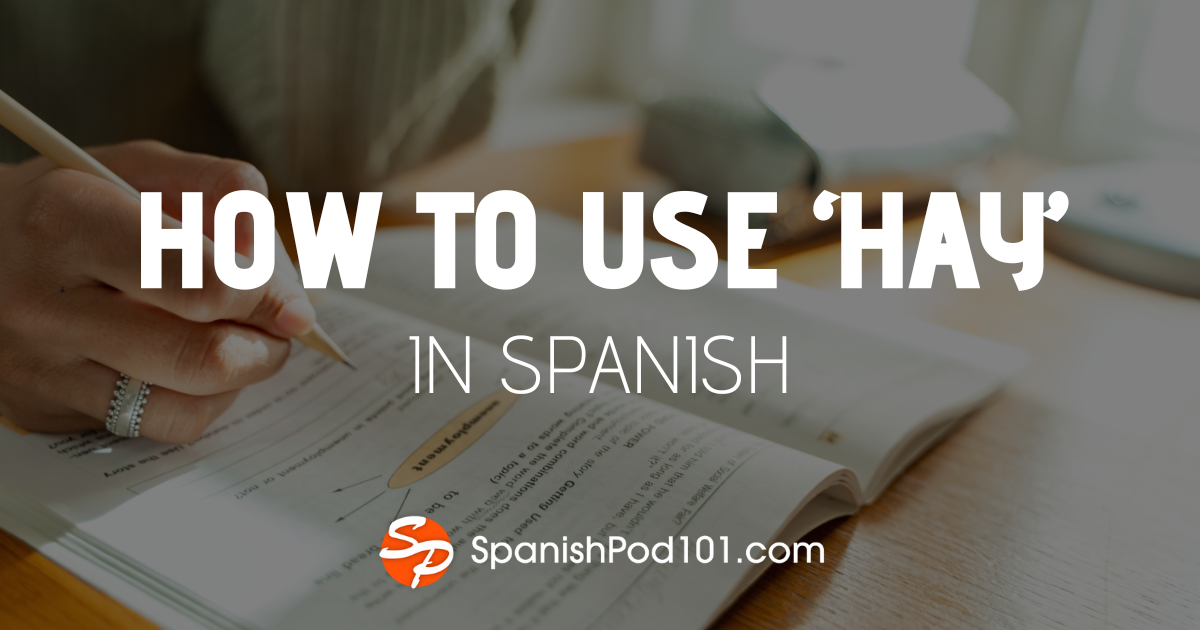Archive for the 'Working Abroad' Category
March 21, 2019
How to Find a Job in Spain
One of the most common reasons to start learning a language is the motivation of moving to a different country and working there. Today at SpanishPod101.com, we’re going to talk about why you should consider moving to Spain and how to find a job there, as well as teach you a few basic facts, such as how to say “job” in Spanish, and more.
We’re not going to lie: In the past, getting a job in Spain hasn’t been as easy as we’d have liked. However, we have good news. The situation has actually been improving over the past two years. According to Trading Economics, in July 2018, the general unemployment rate in Spain was 15.3%. It sounds bad, but compare it to the rate in 2015 and 2016, which was around 21%. Definitely some improvement... Show more
September 30, 2010
Top Five Phrases You Will Hear in a Classroom
Today's lesson will focus on the top five phrases you will hear in a classroom in the Spanish Language. If you don't know these already, they will be very useful to you.
Perdón, tengo una pregunta... ("Excuse me, I have a question...")
This is a common and polite way of getting someone's attention to ask a question, whether it's a
teacher, a friend, or a stranger.
Cómo se dice...(en español)? ("How do you say that (in Spanish)?")
Use this phrase to ask for the Spanish equivalent of an English word. Rather than asking in English,
"Hey, how do you say that?" asking in Spanish will earn you brownie points with your teacher. It will
also help keep your brain in Spanish-speaking mode.
¿Qué quiere decir? ("What does that mean?")
... Show more
September 23, 2010
Five Things Your Spanish Teacher Won’t Teach You
Today we are going to teach you commonly used phrases and/or words in Spanish a teacher would not teach you. Below are some examples!
The "Dude" Words
Many varieties of informal Spanish have a "dude" word that peppers their sentences. It's considered
very informal, and your Spanish teacher will not bother to address you in this way, but in informal
situations, you'll hear it all the time. Different countries have different words for this word.
The "Wow" Words
Here are several ways to express surprise in Spanish: hijole, andale, vaya, caray, jolín, and guao.
Pedo
If you look up el pedo in the dictionary, you'll find that its primary definition is "fart," so you can
understand why your teacher is not excited about teaching... Show more
September 16, 2010
Top Five Mistakes Not to Make When Using Spanish!
In this All About, you will find out the top 5 mistakes often made in the Spanish language. Knowing them will help you not to make them!
Mistake Number Five: Crimes against Gustar
Spanish people translate me gusta and me gustan as "I like," and if you like something singular you say me gusta, and if you like something plural you say me gustan. Gustar is a verb that actually means "it gives me pleasure" so if you conjugate it like other regular verbs, you might be saying something wrong.
Mistake Number Four: -r Fixation
One big mistake people make when learning Spanish is fixating on the -r. The trilled -r intimidates some people so much that they decide they can't learn Spanish; others try to trill every -r they see, which... Show more
September 9, 2010
Top Five Tools to Learn Spanish
Featured today in this lesson, we will supply you with a few five great tools to learn how to speak Spanish! Keep these tools under your belt and it'll make your learning experience smoother and easier.
Tool Number One: A Spanish Dictionary
Bilingual dictionaries used to be a burden to the language student; it used to be that only the larger-sized dictionaries were complete enough to be useful, but these large-format dictionaries were difficult to carry around. Nowadays, web-based dictionaries are the standard; they are complete enough to help you with your composition assignments, faster than paperbound dictionaries, and available in any web browser or smartphone.
Tool Number Two: A Verb Conjugator
A verb conjugating... Show more
September 2, 2010
All About Latin American Pop culture
As popular culture changes quickly and drastically, this lesson focuses on the most recent pop culture phenomena in the Spanish speaking countries.
Popular Music
The Spanish music scene at the moment is dominated by Reggaeton, a mix of hip-hop and reggae that developed mostly out of the music scenes of Puerto Rico, New York, and Miami. With that said, there has also been a steady growth of EMO and electronic bands in the Spanish-speaking countries, which has brought forth fashion styles and trends associated with this music genre: skinny jeans, converse shoes, snug shirts, and full-fledged black outfits.
Cinema
The revival of Spanish-speaking independent cinema has also propelled major production companies to produce more... Show more
August 26, 2010
Five Famous Festivals
This Spanish All About Lesson you will learn about five of the more famous festivals in Spain and Latin America.
Sanfermines-"The Running of the Bulls"
This ten-day municipal festival in Pamplona, Spain is well known in the English-speaking world as the
"running of the bulls." The festival commemorates Saint Fermin, a martyr and patron saint of the
participants, who dress in white with red scarves for the event.
Puente Guadalupe-Reyes - "Christmas Season"
Traditionally in the Spanish-speaking world, it is the Three Wise Men who mysteriously bring gifts to children on Epiphany, although some families also observe the Santa Claus tradition of gift giving on Christmas Day.
Semana Santa - "Holy Week"
Holy Week celebrations... Show more
May 21, 2010
Five Things You Should Know About Spanish Speaking Cultures
The Focus of This Lesson Is Five Things You Should Know about Spanish-speaking Cultures.
1. The Kiss and the Handshake
In the Spanish-speaking world, women are always greeted with a kiss, both as a hello and as a good-bye. Sometimes this kiss is a peck on the check, but many times, it's that kiss where you touch cheeks and kiss the air.
In general, you reach left for the first kiss; that is, it's your right cheek that gets kissed first.
Men usually greet each other with a handshake rather than a kiss, both as a hello and a good-bye.
2. La hora latina
It is a widely held belief that Spanish-speakers always arrive late to events, even among Spanish speakers themselves. People often refer to this as la hora latina,... Show more
December 25, 2008
Happy Holidays and Happy New Year From SpanishPod101.com!
Happy Holidays and Happy New Year from everyone here at SpanishPod101.com! We're grateful to have listeners just like you, and we're eagerly waiting for the upcoming year to learn Spanish together!
And when the New Year comes around, be sure to make a resolution to study Spanish with SpanishPod101.com!
Have a healthy and happy holiday season.
From the SpanishPod101.com Team!









